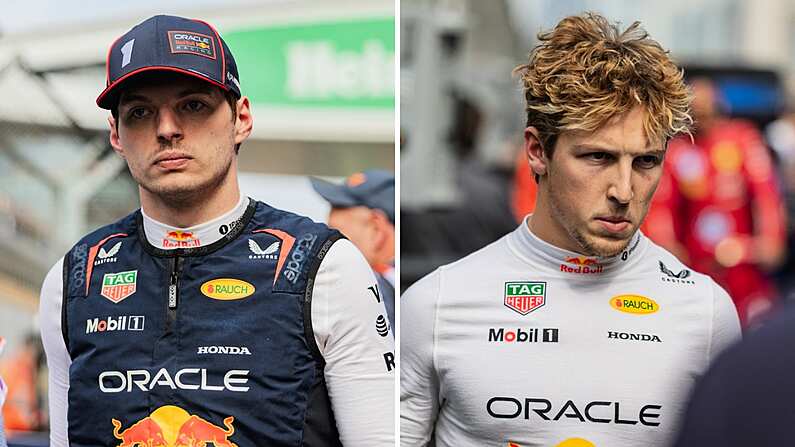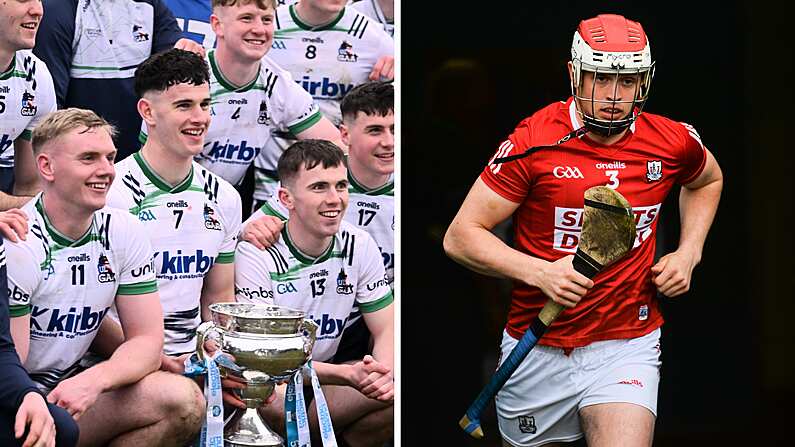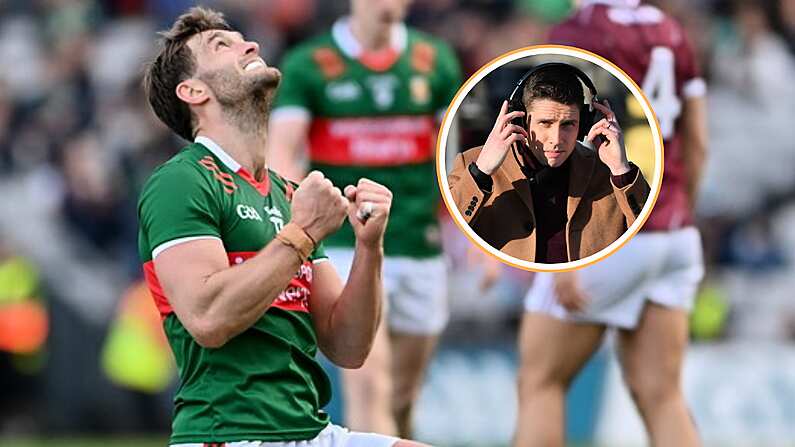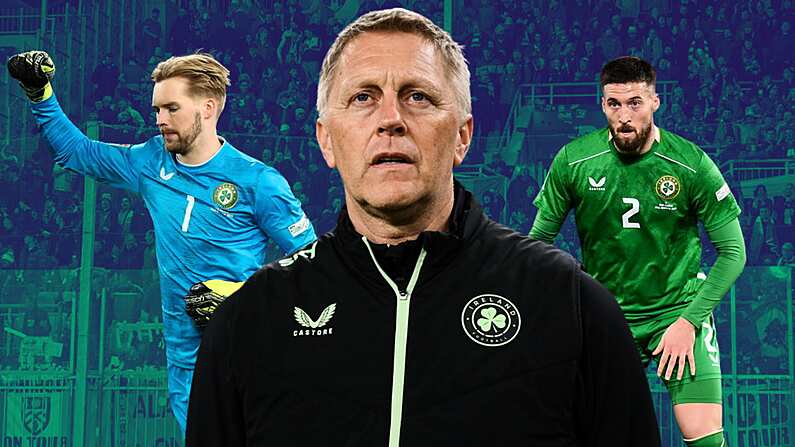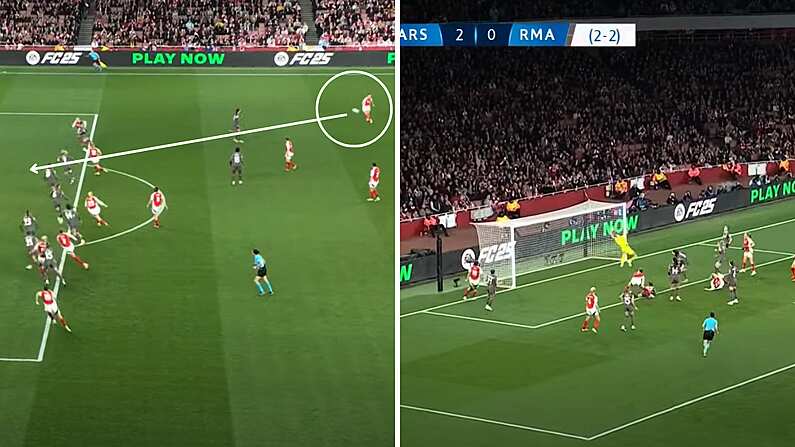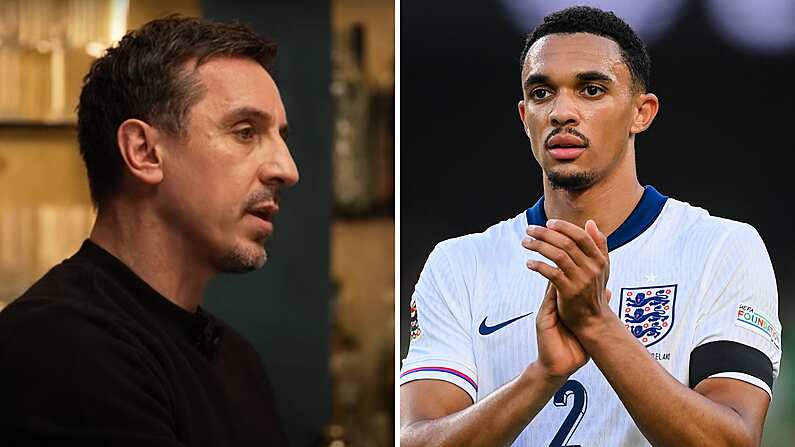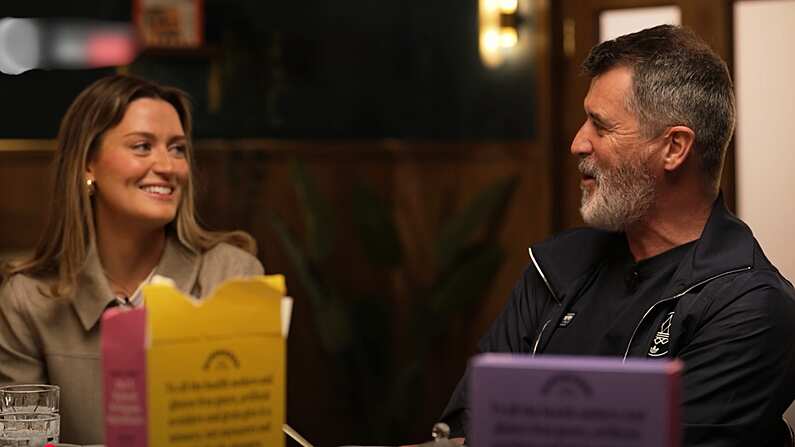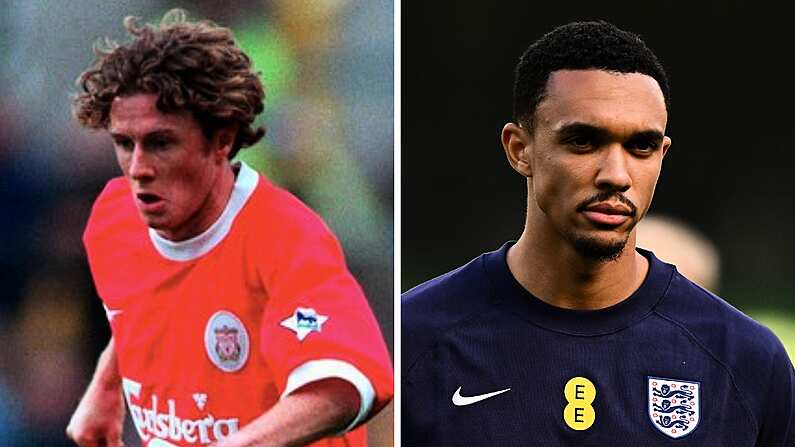Turner's Cross on the final day of May, 2016.
Martin O'Neill is about to smithereen a few dreams beneath an uncomfortable sunshine.
David Forde knew he was among the unlucky few more than half an hour before the news.
63 minutes into Ireland's final game before the announcement of the Euro 2016 squad, O'Neill turned to his bench.
As the game was going on, myself and Keiren Westwood were sitting by each other on the bench. Martin told me to get ready, and Keiren turned to me and said, 'Well, that's me not going now'.
But I just had this feeling that I would be coming on the pitch and I wouldn't be travelling.
Forde's instincts were borne out as truth. O'Neill named the squad for the tournament after the game, and immediately before doing so, O'Neill took Forde aside to say that, having started the qualifying campaign as No.1, he wasn't considered among the top three for the competition itself. "Once the manager called me into the room and told me it was a lonely space", Forde tells me. "It was a difficult thing to take. Over the last two years, my goal was to go to the Euros, and I had started the campaign.... it was bitterly disappointing".
A dream curdled; an international career over.
As Forde left the ground, rather than sequester himself away with his bespoke pain, he stopped to sign every autograph he was asked for on his way out of Turner's Cross. It was a remarkable response to one of the most shattering blows of his career.
It was a response years in the making.
*****
Forde is the subject of a documentary entitled Taming The Lion, which charts his journey as a footballer, and his overcoming anxiety, rage and insecurity through meditation. Forde is searingly honest throughout and talks candidly about how opportunities early in his career led to painful moments of self-doubt.
This manifested itself through frequent bursts of anger, which led to tense moments in dressing rooms and on training grounds. The most infamous came on the field, however. Forde left Galway United for Barry Town in Wales early in his career for a bit more exposure to English football. His time at the club, however, ended in ignominy. Here's how Forde recounts it in the documentary:
Off the field, I was struggling with homesickness, [I was] missing my family and missing my friends. I felt things were snowballing, and getting on top of me. As the games were going on, there was more and more pressure, relevant to where we were in the league. People might say, 'it was only a League of Wales game' but at the time it was all I had.
The referee intervened [during a game], and it was one of those moments when everyone is wondering, 'what happened there'? But I got a straight red card, and was sent off for hitting my own player.
I remember coming into the dressing room full of self-loathing. I was lower than a snake's belly. The lads were looking at me, asking, 'for such a nice guy, where does that Jekyll and Hyde come from'?
Forde calls it a moment of "self-sabotage" that had an unlikely positive effect. After the red card, Forde told manager Kenny Browne that he was going to return to Ireland. In response, Browne called in contacts at West Ham, and arranged a trial for Forde under Glenn Roeder.
It went well, and Forde ultimately made the bench five times for West Ham in the Premier League. This was soon to sour amid football's unique caprice. West Ham were relegated from the league with a then-record high points total, and Forde was among the fall guys in the subsequent budget-trimming. Disillusioned, he returned to Ireland to study Arts in NUIG, beset by feelings of "guilt and shame" that he was returning home a failure.
With his hunger for football AWOL, Stephen Kenny appeared in Oranmore, beseeching Forde to help him out for the rest of the season at Derry City. That led to a two-year spell at the Brandywell, which featured three cups, European competition and a ticket back to English football. This preceded the most consistent part of Forde's career: a nine-year spell with Millwall, in which he played more than 300 times.
This was a period crowned with his Irish debut under Trapattoni, against Gigi Buffon and Italy in Liege. As the rain cascaded down during the anthems, Forde's eyes were wet with tears.
These were happier times but not without strife. Forde was frequently engulfed with doubt and anxiety, particularly returning to Millwall as a senior international. Forde's form slipped and basic errors crept into his game as he became keenly aware of the greater expectations that came with international recognition and a pay rise. It would manifest itself in "eruptions of rage" around the club, and ultimately, a two-month absence with a thigh injury that offered Forde time to reflect.
"It was devastating", says Forde. "It was a really difficult time. Everything started chasing through my mind: I'm going to lose my position at Millwall, I'm going to lose my position with Ireland, I'll miss out on the Euros. I was finding it difficult to understand my emotions at the time.... I had such anger and rage within me. I was on fire inside".
Forde eventually came to the realisation that this rage and insecurity was hindering him, part of the panoply of "interfering thoughts" which intrude on a footballer's daily life. From here, Forde discovered meditation. He describes it as a way of getting all of this under control.
Through life we go through a mix of enabling thoughts and interfering thoughts. I was at the stage of my career when I decided to take a look at it. It came down to self-kindness. Once I started allowing my mistakes, and understanding them, my life changed. I was so hard on myself at times, and life can be hard enough without that.
I punished myself so often through sport, and I learned how to deal with those mistakes that could have been crushing. So once I discovered kindness, it helped me through grief, stress, anxieties, insecurities, low self-worth and those type of emotions that can be so disabling.
I was emotionally illiterate; I didn't know these feelings. I didn't grasp how these were influencing my performance.
Forde uses Japa meditation, an ancient technique which Forde says helps him "focus and cleanse my mind of those limiting thoughts". Initially, Forde kept his meditation secret, away from a football world of ceaseless noise and machismo, admittedly daunted by a "fear of judgement".
Soon, however, opening up on meditation became just a step in a wider process of leaving himself vulnerable, which Forde describes as being symbolic of great strength.
It takes great strength to be vulnerable.
Vulnerablitiy is a place of openness, a place where you show your weakness, to be intimate with other about your greatest anxieties that you don't want anyone else to know about. When you explore your vulnerable side, it can be such a powerful thing. Once we learn how to trust, and be intimate. That's truly what gives you strength and courage.
The documentary proved to be the latest step in this process for Forde, who says that "my main concern [about becoming involved in the film] centered around what people thought of me, and that was my greatest fear. To go on a documentary and leave myself open and vulnerable has done so much to conquer those fears. It was an exercise so cathartic, and it has helped me become fearless through the adversity of my fear of judgement".
The Turner's Cross experience encapsulates Forde's progress. I ask how fresh the wound of missing out on the Euros is. Expecting to say it rankles, Forde instead it instructs. "No, it's not a huge disappointment now. I learned so much from that experience. I started to be kind myself, and I did the best job I possibly could do".
*****
Forde wants to teach others of the power of understanding themselves.
The final ten minutes of the documentary features a remarkably honest discussion with his mentor, Denis Curran. Forde is scathing of the fraught environment in football, in which a culture of insecurity and anxiety breeds as a result of coaches who treat their players solely as that, rather than as boys and men. Insecurity among footballers, says Forde, is a "survival mechanism" in a "ruthless experience in which career are short and getting shorter".
He talks in the documentary of how GAA and rugby are"making men", yet football begets immaturity:
You look at the rugby dynamic. They are making men. Even within the GAA, they are making well-grounded men. There'a a huge immaturity within football, there is still that boyish mentality.
I feel that football clubs and football in general have to help make young men, and help them progress. You look at the statistics today. 75-80% of all footballers, once they finish finish football, they are one of five things: alcoholics, gamblers, drug addicts, divorced, or suicidal.
There's something fundamentally not right in football.
Forde says he knows meditation won't suit everyone, but knows that it can help certain people in every walk of life. Few industries are as relevant to this as football, as Forde's journey has shown.
Forde's maturity shone through beneath the setting sun outside Turner's Cross, as he signed autographs as an Irish international knowing that very international career was finished. By no means is this a quality general across Irish football.
In the documentary, it's revealed that Forde's young nephew asked an Irish player for an autograph in the player's lounge after an international game.
He was refused.
David Forde: Taming The Lion is available to view here.


